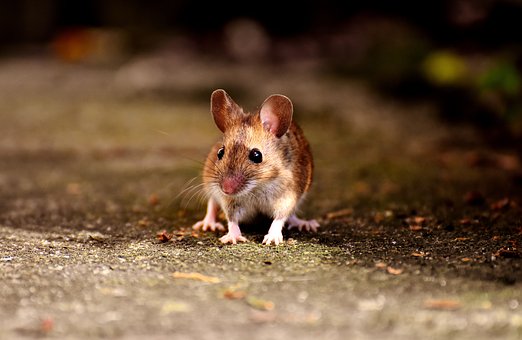
Mice
A mouse’s digestive tract can get easily damaged by viruses, parasites and bacteria. If you have mice, you should monitor them closely to look for signs of disease such as weight loss, change in appetite and eating habits, diarrhea or, rough fur.
Digestive diseases are the most common in mice if there is a lack of sanitation.
It can be difficult for you to determine the disorder on your own; you may want to visit a veterinarian to provide the appropriate treatment. Most of these diseases can be prevented by having good sanitation; make sure you clean their housing often. Let us discover the different kinds of digestive issues that your mice may be confronted with and why;

Bacterial Infection;
Bacterial infection occurs when a large number of bacteria enter the body, thus creating a reaction.
In mice kept as pets, bacterial infections of the digestive tract are uncommon. Still, they are prevalent in breeding or research colonies whenever they contact other mice that can transport bacteria. Infected animals are most likely to be young and anxious. Loss of appetite, dehydration, watery feces, ruffled fur, lethargy, and slumped posture are all disease symptoms.
The germs are most commonly transmitted through contact with the excrement of infected animals. Antibiotics and fluids, as well as anti-diarrheal medications, are used to treat bacterial infections. Follow your veterinarian’s instructions to keep affected animals isolated and disinfect cages and equipment.
Viral Infection
In the same way that bacterial infections are more common in colonies of mice than in mice maintained as pets, viral infections of the digestive system are more common in colonies of mice.
It can be difficult to tell whether an illness is viral, bacterial, or caused by other species. Infected young mice are more prone than adult mice to become infected. Watery feces and weight loss are two symptoms of digestive disorders caused by a virus.
However, there are no curative treatments available. Your vet can give treatments to ease the symptoms, but you have to wait till their immune system fight off the virus; in this case, antibiotics will not work. Getting a vaccine beforehand will help to lessen the severity of the virus.
Protozoa-Induced Infections
Protozoa (single-celled microorganisms) are normally found in the digestive tracts of mice and do not cause sickness. These protozoa (most commonly Spironucleus muris and Giardia muris) can cause intestinal infections in younger or stressed mice.
Infection is spread through feces that have been infected. Diarrhea, weight loss, lethargy, and a rough hair coat are all symptoms of infected mice. Young mice’s growth may be hindered. The protozoa can be controlled with the right medications, but they can’t always be eliminated.

Pinworm
In mice, pinworms are a frequent intestinal parasite. Mice generally carry pinworms without causing disease. However, a severe infection might result in diarrhea owing to intestinal inflammation. The disease is spread by ingesting feces-contaminated items, and infected mice normally show no symptoms. Identifying worms or their eggs in infected feces or on the area around the mouse’s anus is how the condition is identified. Pinworm infection can be treated with medications obtained from a veterinarian. Because pinworm eggs are light and can float in the air, sanitizing and disinfecting the cage is crucial for the treatment plan. Listen to your veterinarian’s advice when it comes to medication and cage cleaning.
Tapeworm
Mice infected with tapeworms are relatively uncommon, and there are usually no clinical symptoms. On the other hand, a severe infestation may result in diarrhea and weight loss. If swallowed, the dwarf tapeworm has the ability to infect humans. When handling infected mice, exercise caution. Cockroaches, beetles, and fleas are the carriers of tapeworms. Tapeworm eggs in infected feces are used to diagnose the infection. Treatment is offered in the form of medications. The cage should be cleaned and sanitized. Listen to your veterinarian’s advice when it comes to medication and cage cleaning.
Let us know in the comments if you have ever encountered any of these…







